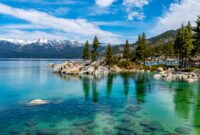Elder travel offers a world of possibilities for those seeking enriching experiences in their later years. Whether it’s the thrill of an adventurous trek, the relaxation of a luxurious cruise, or the rejuvenation of a wellness retreat, there’s a perfect travel style for every senior. This exploration delves into the diverse facets of elder travel, from meticulous planning and accessible destinations to mindful budgeting and ensuring health and safety throughout the journey. We’ll uncover the secrets to crafting unforgettable memories while prioritizing comfort and well-being.
This guide provides comprehensive information to assist older adults in planning and executing safe, enjoyable, and enriching travel experiences. We cover essential aspects such as choosing appropriate destinations and accommodations, selecting suitable transportation options, and managing potential health concerns. The aim is to empower seniors to explore the world with confidence and peace of mind.
Types of Elder Travel
Choosing the right type of travel experience is crucial for older adults, ensuring both enjoyment and comfort. The options are diverse, catering to various preferences and physical capabilities. Careful consideration of individual needs and desires will lead to a memorable and fulfilling journey.
Adventure Travel for Seniors
Adventure travel for seniors is designed to provide exciting experiences while prioritizing safety and comfort. This might involve gentler hiking trails with stunning views, guided wildlife safaris in accessible vehicles, or kayaking trips on calm waters. The emphasis is on experiencing new cultures and environments at a pace suitable for older travelers. Trips are often structured with shorter travel days and more rest time built into the itinerary. For example, a tour of national parks might include accessible van transportation to viewpoints and shorter, well-maintained trails, rather than strenuous climbs. The appeal lies in the thrill of exploration combined with the reassurance of well-planned logistics and experienced guides. Physical demands are moderate to low, depending on the specific activity chosen, and accessibility features are usually integrated into the trip design.
Cruise Travel for Older Adults
Cruises offer a convenient and relaxing form of travel for older adults. All-inclusive packages handle accommodation, meals, and entertainment, minimizing the stress associated with planning and logistics. Many cruise lines cater specifically to mature travelers, offering amenities like accessible cabins, medical facilities onboard, and shore excursions tailored to varying mobility levels. The appeal of cruise travel is its ease and variety; passengers can enjoy onboard amenities, participate in organized activities, or simply relax and enjoy the scenery. Physical demands are generally low, with most activities optional. Accessibility features are becoming increasingly prevalent, with ramps, elevators, and adapted cabins available on many ships. For instance, Royal Caribbean offers accessible staterooms and specialized assistance for passengers with disabilities.
Wellness Retreats for Seniors
Wellness retreats focus on promoting physical and mental well-being through a combination of relaxation, healthy activities, and mindful practices. These retreats often feature yoga classes, meditation sessions, spa treatments, and healthy cuisine. The environment is typically serene and peaceful, allowing participants to de-stress and rejuvenate. The appeal lies in the opportunity to improve health and well-being in a supportive and tranquil setting. Physical demands are generally low to moderate, with activities tailored to individual fitness levels. Many retreats offer options for those with limited mobility, ensuring participation for a wide range of fitness levels. For example, a retreat might offer chair yoga alongside more strenuous classes. Accessibility features are usually considered, although it is advisable to check individual retreat details.
Planning and Preparation for Elder Travel
Planning a trip for older adults requires meticulous attention to detail, ensuring a safe, comfortable, and enjoyable experience. This involves careful consideration of physical limitations, potential health concerns, and the overall travel itinerary. Proper preparation can significantly reduce stress and enhance the overall travel experience.
Step-by-Step Trip Planning for Older Adults
A well-structured plan is crucial. Begin by identifying the destination and desired activities, keeping in mind the traveler’s physical capabilities and interests. Next, research accessible accommodations and transportation options, considering factors like proximity to medical facilities and ease of navigation. Booking flights and accommodations in advance is recommended, especially during peak seasons, to secure the best options and potentially benefit from early-bird discounts. Finally, create a detailed itinerary, including planned activities, transportation schedules, and contingency plans for unexpected events. Remember to allow for ample rest periods throughout the journey.
Travel Insurance and Medical Preparedness
Comprehensive travel insurance is paramount for older travelers. It should cover medical emergencies, trip cancellations, and lost luggage. Policies should specifically address pre-existing medical conditions and include emergency medical evacuation coverage. Before departure, schedule a checkup with the traveler’s physician to discuss any potential health risks associated with the trip and obtain necessary vaccinations or prescriptions. Pack a well-stocked first-aid kit including any regularly used medications, along with copies of medical records and insurance information. Consider carrying a medical alert bracelet or necklace clearly identifying any allergies or health conditions.
Emergency Contacts and Communication
Establishing a robust communication system is vital. Provide emergency contact information to family, friends, and the hotel/accommodation. Share itinerary details with someone at home, and establish regular check-in times. Consider purchasing a local SIM card or renting a mobile phone with international calling capabilities to ensure consistent communication. Pre-download essential apps such as translation tools, maps, and ride-sharing services.
Efficient and Comfortable Packing for Older Travelers
Packing light is key to ease the burden of travel. Prioritize comfortable, lightweight clothing suitable for the climate. Choose easy-to-manage luggage with wheels and consider a walking aid if needed. Pack versatile items that can be mixed and matched to reduce the overall number of clothes.
- Comfortable walking shoes
- Lightweight, breathable clothing
- Medications (with prescriptions)
- First-aid kit
- Copies of important documents (passport, insurance, medical records)
- Small toiletry bag
- Portable charger
- Reading material
- Walking stick or other mobility aids (if necessary)
- Any assistive devices (hearing aids, glasses)
Ending Remarks
Ultimately, elder travel is about embracing new adventures and creating lasting memories. By carefully considering the factors outlined in this guide – from meticulous planning and accessible destinations to mindful budgeting and prioritizing health and safety – older adults can confidently embark on fulfilling journeys that enrich their lives. Remember that the journey itself is as valuable as the destination, so embrace the experience and savor every moment.




